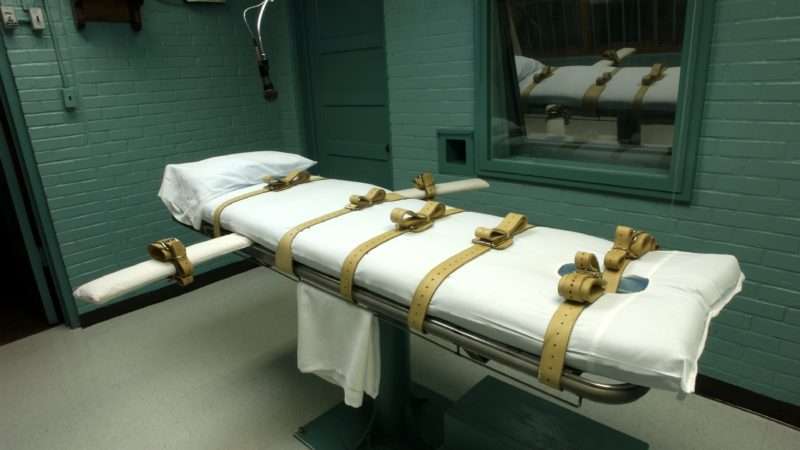
Last week, the Alabama Supreme Court made a startling change to the state's execution procedures. Instead of requiring that executions occur during a specific date, the governor will now have the sole authority to set a "time frame" during which executions can be carried out. The change is unprecedented in the United States.
While the change seems minor, it has major ramifications for death-row inmates. When attempts to execute an inmate drag on for too long, they were previously required to cease by midnight on the execution date if unsuccessful. However, with the new change, prison officials will be able to drag out an execution attempt over days.
The new rule, finalized last Thursday, seems to be related to a string of botched executions and execution attempts in the state. In November, the state called off one execution after attempts to insert a needle necessary to begin the lethal injection process took too long and the midnight deadline passed. Another inmate was successfully executed but only after significant delays allegedly caused by the same problems with inserting an I.V. catheter. In the wake of these cases, Republican Gov. Kay Ivey announced in November that she would be seeking a temporary moratorium on executions.
The rule was enacted as part of a larger set of changes ordered by the Alabama Supreme Court. In addition to changing the time restrictions on executions, the court also introduced a new rule eliminating automatic "plain error review" in death penalty cases. The change removes an important due process protection for death row inmates where death penalty cases are automatically reviewed for clear errors at trial, even if the defense attorney did not object at the time. Under new rules, judges can still undertake these reviews, but they're no longer required.
Almost immediately, the new rules received criticism from civil liberties groups. "What's troubling about this is, we recognize that the Department of Corrections was basically botching executions…now we are putting the power for them to basically torture people for as many as hours for as many days as they need to, to get the execution done," Allison Mollman, a senior legal counselor for the American Civil Liberties Union of Alabama, told a local news station.
"The practical effect of allowing an execution to be carried out during an undefined 'time frame' instead of a specific date is that the State could continuously attempt to execute condemned prisoners like Kenneth Smith for hours or days," the Equal Justice Initiative, an anti-death-penalty group, wrote in a Tuesday press release. "Under the new rule, the State would have been able to prolong the botched execution process indefinitely,"
With these new rules in force, Alabama seems poised neither to solve the problems leading to a recent string of botched executions nor to rethink the practice entirely—but rather to make torturous, hourslong executions the norm.
The post In Alabama, New Rules Make Botched Executions More Likely appeared first on Reason.com.







